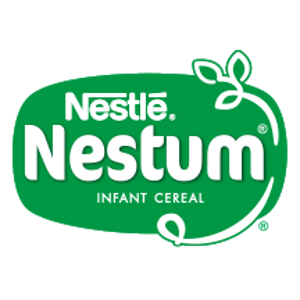
Family Meals for Toddlers
Explore how family meals for toddlers can boost their development and create lasting bonds. Find tips on making mealtime fun and nutritious with easy, toddler-friendly recipes.
Meals are more than just a time to eat; they are a foundational aspect of nurturing your child's development and fostering a strong family bond. As a mother, you understand the importance of providing family meals for toddlers and the benefits of shared mealtime that extend far beyond nutrition.
Regular family meals offer a unique opportunity for toddlers to learn social skills, develop healthy eating habits, and improve their language skills through interaction with family members.
Understanding the significance of family meals for toddlers can help you make these moments enjoyable and educational. In Baby&Me, we will consider the ways you can make family meals a regular and enriching part of your daily routine, benefiting your toddler’s overall growth and reinforcing your family's connection.
How Family Meals for Toddlers Help Your Child
Family meals for toddlers play a crucial role in their overall development and well-being. Eating together ensures that your toddler is exposed to a balanced diet rich in essential nutrients. You can monitor their food intake more effectively and introduce a variety of healthy foods, helping to establish long-term healthy eating habits.
Family meals provide a platform for toddlers to observe and practice social interactions. They learn essential manners, such as saying "please" and "thank you," taking turns, and engaging in polite conversation.
Engaging in conversation during meals helps toddlers develop their vocabulary and communication skills. Listening to adults and older siblings talk can enhance their understanding of language structure and usage.
Also, sharing meals is a way to pass down family traditions and cultural practices. This helps toddlers develop a sense of identity and understand their heritage, strengthening family bonds.
By making family meals a priority, you are providing your toddler with invaluable experiences that contribute to their physical, social, and emotional development.
Tips for Family Meals for Your Toddler
Creating enjoyable and meaningful family meals for your toddler is an essential part of their upbringing. These shared mealtimes can be both fun and educational, offering numerous benefits for your child’s development. Here are some tips to make family meals engaging and beneficial for your toddler:
Make It a Routine
Establishing a regular mealtime schedule helps create a sense of predictability and security for your toddler. Aim to have meals at the same times each day, allowing your child to anticipate and look forward to these moments.
Involve Your Toddler
Encourage your toddler to participate in meal preparation. Simple tasks like washing vegetables, stirring ingredients, or setting the table can make them feel involved and excited about mealtime.
Create a Positive Atmosphere
Keep mealtimes relaxed and enjoyable. Avoid distractions like television or mobile devices, and focus on having engaging conversations with your toddler. This fosters a positive association with eating and family time.
Offer Variety
Introduce a variety of foods to your toddler’s diet. This not only ensures they receive a range of nutrients but also helps them develop a taste for different flavors and textures. Be patient with new foods, as toddlers may need several exposures before accepting them.
Model Healthy Eating Habits
Your toddler learns by watching you. Demonstrate healthy eating behaviors by choosing nutritious foods, practicing portion control, and showing enjoyment in your meals. Your positive example can encourage your toddler to follow suit.
Encourage Self-Feeding
Allow your toddler to try feeding themselves, even if it gets messy. This promotes independence and fine motor skills. Offer toddler-friendly utensils and finger foods to make self-feeding easier.
Celebrate Small Wins
Praise your toddler for trying new foods or eating well. Positive reinforcement can motivate them to continue making healthy choices and enjoying family meals.
By prioritizing family meals and making them a consistent and enjoyable part of your daily routine, you’re setting the foundation for lifelong healthy eating habits and strengthening your family’s bond.
These shared moments around the table benefit your toddler’s development and create cherished memories for your entire family.

Meals to Enjoy with Your Toddler
Sharing meals with your toddler can be a delightful experience, especially when you choose dishes that are nutritious, easy to prepare, and appealing to little ones. Here are some meal ideas that you and your toddler can enjoy together:
Mini Veggie Frittatas
Packed with vegetables and protein, mini frittatas are a great way to start the day. They’re easy for toddlers to hold and can be customized with your child’s favorite veggies. Prepare a batch and store them for quick breakfasts or snacks.
Chicken and Veggie Skewers
These colorful skewers are not only visually appealing but also fun for toddlers to eat. Use bite-sized pieces of chicken and a variety of vegetables like bell peppers, cherry tomatoes, and zucchini. Make sure everything is cooked until soft for easy chewing.
Fruit and Yogurt Parfaits
Layer yogurt with fresh fruit and a sprinkle of granola for a simple yet tasty dessert or snack. Let your toddler help with the layering process to make it more interactive and fun.
Banana and Oatmeal Pancakes
These pancakes are a nutritious twist on a classic breakfast favorite. Made with ripe bananas and oats, they are naturally sweet and easy to make. Serve with a drizzle of honey or a dollop of yogurt.
These meal ideas not only provide balanced nutrition but also make mealtime an enjoyable and engaging experience for your toddler. By involving your child in the preparation process and offering a variety of flavors and textures, you can help them develop a positive relationship with food and family meals.

Gain a better understanding of your child's development with the help of our stages
































